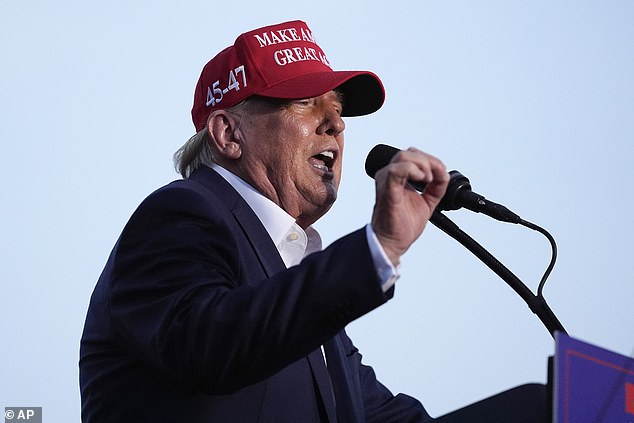Trump’s lawsuit over secret documents dismissed

Federal Judge Aileen Cannon has dramatically dismissed Donald Trump’s classified documents case in a shocking ruling less than 48 hours after he was shot.
The former president was accused of taking highly sensitive national security documents to Mar-a-Lago when he left the White House, and FBI agents seized a trove of material during a search of his Florida home in August 2022.
Judge Cannon dismissed the case, citing “violations” of the Appointments Clause and the Assignments Clause of the Constitution.
She claimed that the appointment of special counsel Jack Smith was unconstitutional.
The decision has a huge impact on Trump’s legal battle. He currently faces only two criminal trials, in Georgia and in federal court in Washington, D.C. A year ago, his case over secret documents seemed like his biggest legal challenge: It might be easier to prove than Trump’s Jan. 6 case, which relied on public statements, tweets and complex schemes involving voters across the country to charge an elaborate conspiracy to overturn the election.
The documents case, on the other hand, followed a series of prosecutions of high-ranking officials, largely based on the discovery of material in their possession.
Trump is awaiting sentencing in New York after he was found guilty on 34 counts of falsifying corporate records. The sentencing date was postponed after the Supreme Court made a complicated ruling on Trump’s claim of immunity from prosecution for official acts performed as president.

The classified documents case against Donald Trump has been dismissed by a federal judge.
The shocking statement comes just hours before the Republican Party Convention begins on Monday. Trump is flying to America on Sunday to make his heroic return from an assassination attempt.
Cannon’s ruling surprised legal observers, although she was skeptical of the administration’s position during a hearing on Trump’s claim that the special counsel’s appointment was baseless.
The Trump-appointed judge’s ruling follows complaints from Trump’s critics in legal circles that she took a long time to make a series of procedural decisions that resulted in the case being stalled until after the election.
One of her recent decisions was to postpone a trial date she had set months earlier in May due to disagreements over evidence related to classified national security documents.
The Justice Department could appeal the decision, after previously getting an appeals panel to overturn Cannon’s decisions.
In December, the 11th Circuit overturned Judge Cannon’s ruling to appoint a special judge to examine the secret documents seized at Mar-a-Lago.
Cannon drew support from a concurring opinion issued by Supreme Court Justice Clarence Thomas in a concurring opinion in Trump’s push for immunity from prosecution. The DOJ had argued that it had no influence on the documents case.

FBI agents seized boxes of classified materials from Trump’s Florida club

Some of the documents taken from the White House were found in closets, storage rooms and even a bathroom that was being used as a storage room

Trump has long attacked the special counsel, calling Jack Smith “deranged” and criticizing the FBI search of his home
“If there is no law establishing the office that the Special Counsel holds, then he cannot proceed with this prosecution. A private citizen cannot prosecute anyone, let alone a former president,” Thomas wrote.
In her 93-page ruling, Cannon ruled that the appointment of officials, such as a special counsel, rests with Congress, not the executive branch.
Attorney General Merrick Garland appointed the special counsel in an attempt to provide insulation from allegations of political interference if his office had directly prosecuted the case. But Cannon was not convinced that authority existed, even though special counsels have been used in several high-profile investigations over the years.
“The Founding Fathers gave Congress a crucial role in the appointment of principal and subordinate officials. That role cannot be usurped by the executive branch or dispersed elsewhere, whether in this case or in another, whether in times of heightened national emergency or not. In the case of subordinate officials, that means that Congress has the authority to decide whether to delegate the power of appointment to a department head, and indeed Congress has demonstrated its ability to do so in many other statutory contexts,” she wrote.
More to follow




